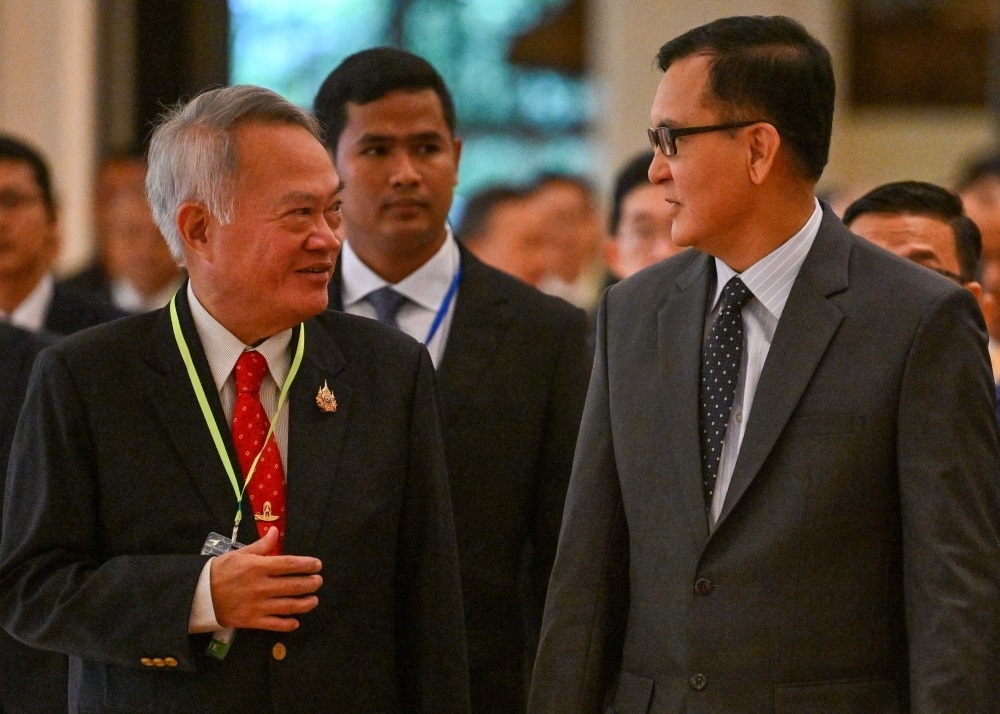Thailand has stated that its recent discussions with Cambodia have yielded “progress” toward resolving a longstanding border dispute that escalated into armed clashes last month, prompting both countries to deploy troops to the contested area.
The talks took place in Phnom Penh on Saturday, June 14, 2025.
Thailand’s delegation was led by Foreign Ministry adviser Prasas Prasasvinitchai and Cambodia represented by Lam Chea, Minister of State for the Secretariat of Border Affairs.
The negotiations followed a deadly incident in the Emerald Triangle, a region where the borders of Thailand, Cambodia, and Laos converge.
There, soldiers from both sides exchanged gunfire on May 28, resulting in the death of one Cambodian soldier.
According to Thailand’s foreign ministry, the Joint Boundary Commission meeting succeeded in fostering “mutual understanding.”
Ministry spokesperson Nikorndej Balankura emphasized during a press briefing that continued diplomatic engagement is the most effective path forward.
Talks were scheduled to extend into Sunday, but no immediate resolution was expected, and the timeline for an agreement remained uncertain.
Both nations claimed self-defence in the recent exchange of fire and agreed to reposition troops to reduce the risk of further clashes.
In the meantime, Thailand has tightened border security, while Cambodia has ordered its forces to remain on “full alert.”
Despite commitments from both sides to resolve the dispute through dialogue and discourage nationalist tensions, Thailand has threatened to shut its border and suspend electricity supplies to Cambodia.
In response, Cambodia has declared it will stop purchasing Thai electricity, internet bandwidth, and agricultural goods.
It also instructed domestic TV stations to cease broadcasting Thai content.
The border dispute stems from the historical demarcation of an 820-kilometer (510-mile) boundary.
Much of this remains undefined since its original mapping during French colonial rule in Indo-China between 1887 and 1954.
Several disputed zones—many with ancient temples—have fueled intermittent violence since 2008, leading to at least 28 deaths.
Earlier this month, Cambodian Prime Minister Hun Manet announced plans to bring the border dispute over four contested areas, including the recent clash site, to the International Court of Justice (ICJ).
Thailand, however, has continued to push for a bilateral resolution.
In a Facebook post on Friday, Hun Manet clarified that Saturday’s discussions would not cover the four areas or border restrictions.
He noted that Cambodia would send a formal letter to the ICJ on Sunday to proceed with the case.
He also said Cambodia was awaiting Thailand’s official response on whether it would join in referring the matter to the ICJ.
Meanwhile, former Cambodian Prime Minister Hun Sen, Hun Manet’s father, criticized the Thai military for its actions at the border.
Sen also accused certain military groups and nationalists in Thailand of escalating tensions.
On Thursday, he remarked that only extremist groups and rogue military elements were provoking issues with Cambodia.
He added that Thailand’s civilian government appeared unable to exercise control over its armed forces in the way Cambodia does.
Although the ICJ ruled in 2013 that the land around the Preah Vihear temple belonged to Cambodia, Thailand has rejected the court’s jurisdiction.



